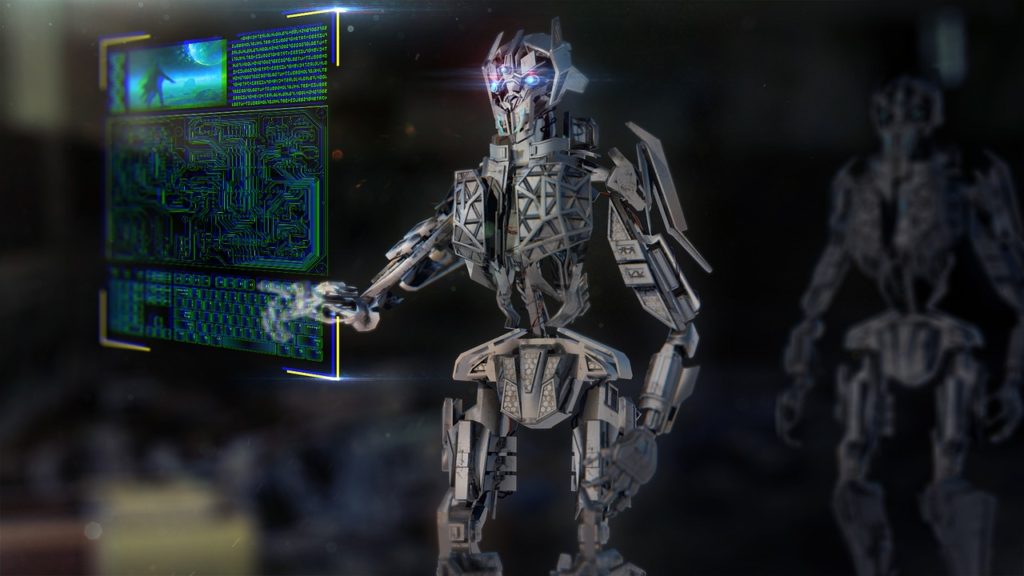Machine Translations – do they work?
Machine translations are more common than ever, but do they work? Should you use them? That depends. Here are 7 reasons why you should and should not use them.
1. Machine translations do work
This is the number one reason why you should use them when you need to. They do work and will let you engage in communication with people who speak a language other than your own.
Artificial intelligence or AI has come a long way. But I prefer to use the term “machine learning,” rather than AI, because as soon as you say “intelligence,” people understand sentience, or consciousness. But AI is NOT really intelligent. It can only do what it has been programmed to do. This includes learning. It can’t decide to study something it has not been programmed to study.
But programmers continue to create better learning algorithms for many areas, and that includes language. As a result, machine translations have come a long way. You can now generally understand most of what is translated, even if the choice of words is often very strange and sometimes really confusing. Even word order is much better than it used to be. Accuracy is greatly improved from just a few years ago. You can carry on a pretty good text conversation with someone whose language you don’t know at all.
2. Machines can’t think
In spite of the commonly used misnomer, machines are not intelligent, nor will they ever be. The machines are never going to turn on humans. They simply are not capable of independent thought. They have no soul, nor can they. We don’t even scientifically know what a soul is, much less capable of producing one to put in a machine. And without a soul, a machine is just a machine, no matter what it looks like.

Since machines can’t think for themselves, they can’t decide if there’s a better, more natural way to say something. Instead, they regurgitate the information that has been programmed into them, hopefully in a way that thinking human beings can make sense of. But machines simply can’t replace humans when it comes to imaginative and interesting (and accurate) ways to say something.
3. Machines don’t care about grammar
Machine translations are often grammatically correct in some places and incredibly, wildly incorrect in others. That can be pretty hit and miss, depending on the software being used, and the languages being translated.
One software, for example, is better at translating from French to English, while another is better translating Chinese to German. No single machine translation algorithm is the same for all languages. In fact, the grammar I’ve seen produced by machine translations is so bad that it renders the document almost impossible to read. This is why, when I am doing proofreading and editing work, that I always ask if it is a translation and if so, for a copy of the document in its original language. I am almost always far better able to work from the original language than from a machine translation.
4. You can’t use machine translations for business documents
Trust me on this one – the best way imaginable to look really unprofessional is to use an online translation service – aka, machine translations, for your business documents. This includes everything from business letters to website copy.
Nothing sets off warning bells to prospective customers and clients quite like a bad translation. And machine translations will give you excellent examples of bad examples, again, and again, and again. There are probably thousands of beautiful-looking, even professionally-made websites out their that are not doing nearly the business they could be doing, if any at all… Because they used that online translation service to translate an otherwise excellent document into English, or some other language, depending on the target market.
5. You can use machine translations for business documents
Yes, you can use machine translations for business documents – if you’re translating it from a language you don’t know into your own. If you have an excellent command of your own language and an eye for quality, you can use machine translations for business.
The drawback is, you need to be very proficient in your own language. If you are not, you will still end up with a less than stellar translation, which nobody wants. Furthermore, if you’re doing it often, you need to learn as much as you can of the language you’re translating from. Machine translations sometimes skip entire phrases or key words that you can’t afford to skip. But if you pay attention and especially if you are gifted in language learning, you can develop an eye for such things quickly.
6. You can translate for others for profit using machine translations
Refer back to both points 4 and 5. There are countless disreputable people out there who advertise their services as translators. A great many of them simply plug whatever document they are given to translate into the most common online machine translator, copy the output, and send that to their customer as the finished product. I know this personally, because I often get those translations for proofreading and editing – and they are almost impossible to read. This is why I require copies of all translations in their original language for reference when I do such work. That way, I can translate a passage, myself, if the so-called copy makes no sense.
But if you only translate into languages you are proficient in, you can provide excellent translations using AI. It can be quite enjoyable if you enjoy puzzles. I advertise such a service, myself, and get quite a number of orders. But I make it very clear in my advertising for that service that I am using AI to do the job and editing it for quality as I go.
My customers love the quality, and I have had praise from other professionals on the quality of the translations. 
There is no need to deliver shoddy work, even if you don’t know the original language. At the same time, I would consider it very unethical not to let prospective customers know in advance.
7. Finally, you can use machine translation to save time
Do you love typing? Then stop reading. But if you would rather not type more than you have to, using a quality online machine translator can save you a lot of typing. You can easily do all your typing in the output window, then copy it and paste it into your working document. BE CAREFUL! It can save a lot of time, but if you’re careless, you will pay for it with a very unhappy customer. Machine translations get a lot of the basics correct, but they also make a ton of mistakes. Read your source document and make sure the translation is accurate before you save it!
Conclusion
Machine translations have come a long way but they haven’t replaced humans, nor will they. They can never provide the color, warmth, and – well – humanity of a human.
Do you do translation work for a living? Chances are you enjoy it! You get to read all kinds of interesting things from around the world, often before anyone else, at least in your language.
But have you been worried that a machine is going to take your place? Don’t be! You are much better at talking to other humans than any machine ever can be!
